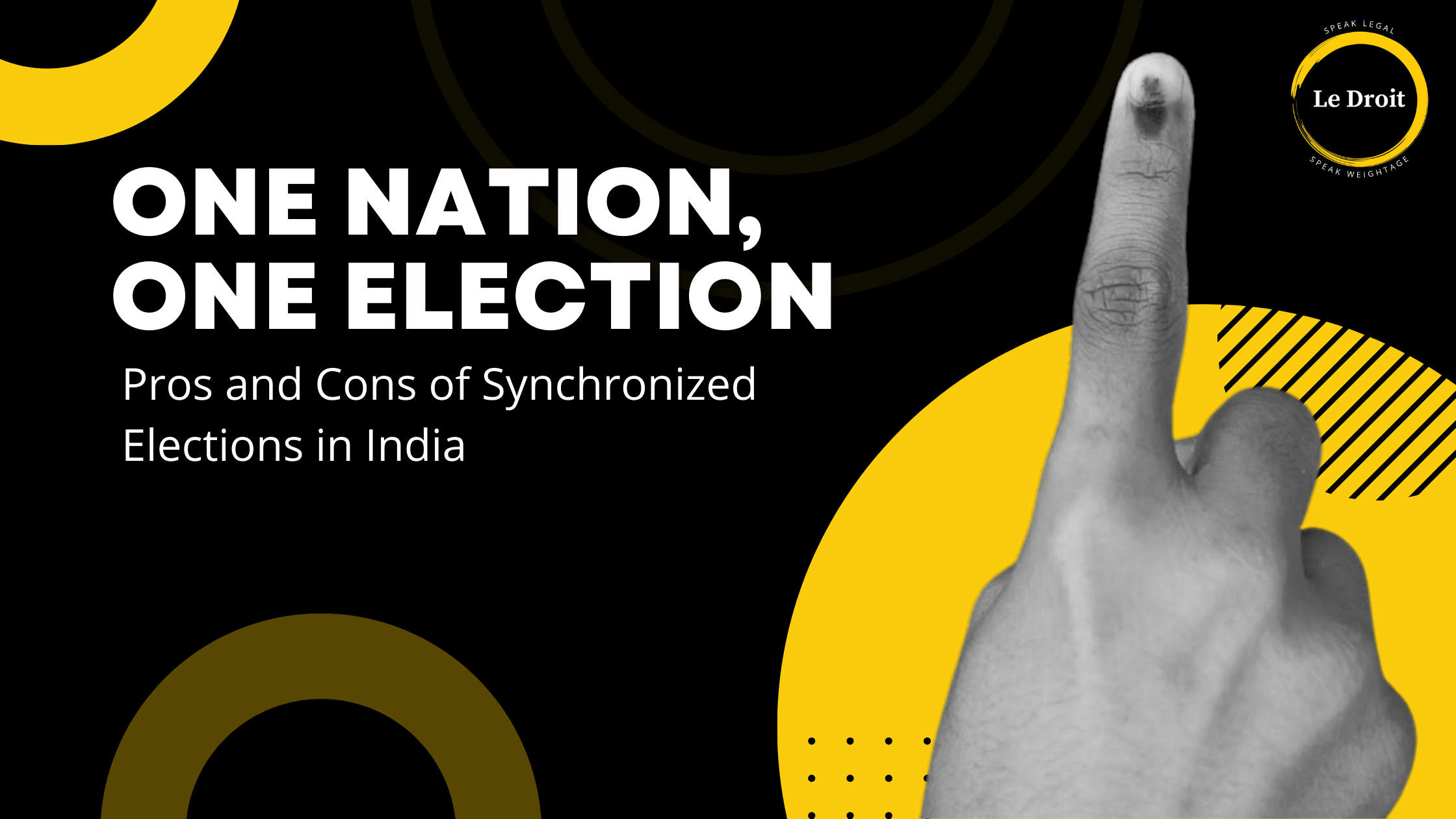India, the world’s largest democracy, is a land of diverse cultures, languages, and political landscapes. The country’s electoral process involves a complex web of elections at various levels, from panchayat polls to national elections. Amid this intricate electoral tapestry, the concept of “One Nation One Election” has emerged as a potential game-changer. This proposal aims to synchronize all elections in the country, from the national Lok Sabha elections to state assembly polls, either on a single day or within a specific timeframe.
What is One Nation One Election?
The One Nation One Election initiative seeks to streamline the electoral process in India by conducting all elections simultaneously. This would involve aligning the terms of the Lok Sabha and state legislative assemblies, ensuring that all polls, both national and regional, take place within a defined window.
Pros of One Nation One Election:
- Reduced Election Expenses: One of the primary arguments in favor of this proposal is the potential for significant cost savings. By conducting multiple elections concurrently, the government can optimize resource allocation and minimize the overall expenditure associated with elections.
- Administrative Efficiency: Synchronized elections could lead to greater administrative efficiency. The Election Commission of India (ECI) would be able to streamline its operations and allocate resources more effectively, potentially leading to smoother and more efficient election management.
- Reduced Political Instability: Frequent elections can lead to a state of perpetual campaigning, disrupting governance and hindering policy implementation. One Nation One Election could create a more stable political environment by reducing the frequency of elections.
- Voter Convenience: Some argue that holding all elections simultaneously could be more convenient for voters, as they would not have to participate in multiple elections throughout the year.
Cons of One Nation One Election:
- Political Concerns: One of the major concerns is the potential impact on the political landscape. Critics argue that synchronizing elections could favor the ruling party at the national level, as state-level issues might be overshadowed by national campaigns. This could undermine the autonomy of regional parties and lead to a more centralized political system.
- Constitutional Challenges: Implementing One Nation One Election would require significant constitutional amendments, which could be a complex and time-consuming process. There are concerns about the potential legal and constitutional hurdles that may arise in implementing such a far-reaching change.
- Practical Difficulties: Synchronizing elections across the vast and diverse landscape of India presents significant logistical challenges. Ensuring free and fair elections in all states simultaneously would require meticulous planning and coordination.
- Impact on Governance: Frequent elections, while disruptive, also provide opportunities for citizens to hold their elected representatives accountable. Reducing the frequency of elections could potentially weaken this mechanism of democratic accountability.
Conclusion:
The One Nation One Election proposal is a complex and multifaceted issue with both potential benefits and drawbacks. While it holds the promise of reduced costs, increased administrative efficiency, and a more stable political environment, it also raises concerns about political implications, constitutional challenges, logistical hurdles, and the potential impact on democratic accountability. A thorough and inclusive public discourse is crucial to weigh the pros and cons of this proposal and determine its feasibility and desirability for India’s unique political landscape.
Join our WhatsApp Group to stay updated with Jobs, internships and other opportunities: https://chat.whatsapp.com/BT9gxd1QgBf9gJlS43sqcd
In case of any queries, feel free to reach us or WhatsApp us at +91 6204801978
Follow us on Instagram
